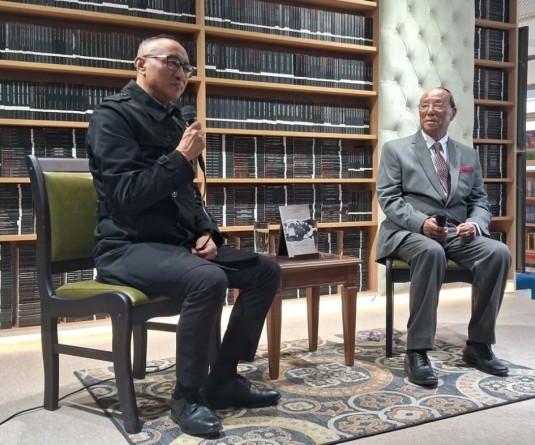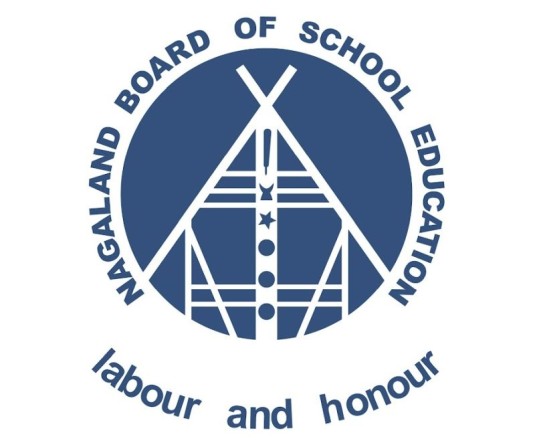Governor of Nagaland La Ganesan along with guests, faculty and others during the inaugural programme of the 1st Sociological Association of North Eastern India at Japfü Christian College, Kigwema on March 21. (Morung Photo)

Morung Express news
Kohima | March 21
Governor of Nagaland La Ganesan has remarked that the role of sociology in this region is paramount, not only in documenting the lived experiences of the people but also in shaping policies that promote inclusivity, social justice and sustainable development.
He was speaking at the 1st Sociological Association of North Eastern India (SANEI) Inaugural programme held at Japfü Christian College (JCC), Kigwema under the theme ‘Sociology in Northeast India: Retrospects and Prospects today.’
The Governor said that the Northeast region of the country is a unique confluence of traditions, unique culture, ethnic identities and aspirations. The various ethnic communities have demonstrated remarkable resilience in the face of geographical, historical and contemporary challenges.
Governor La Ganesan said the Northeast region stands at the crossroads of rapid modernization and the preservation of indigenous knowledge systems and said that it is imperative that a balance is struck between progress and the sustenance of the unique cultural identities.
In this regard, the Governor urged sociologists, social scientists from other disciplines, policymakers and community leaders to work together in addressing pressing issues such as gender equality, violence against women, economic disparities, migration, climate change, identity, environmental sustainability, and the like.
“Academic collaborations and interdisciplinary approaches can significantly contribute to informed decision-making and policy formulation,” he said while adding that institutions such as the SANEI play a vital role in facilitating dialogue and fostering research that can lead to meaningful societal transformation.
The Governor also highlighted the significance of engaging with local communities in research processes.
He commented that Inclusive and participatory methodologies ensure that the voices of indigenous and marginalized groups are not only heard but also form the foundation of academic and policy interventions.
The Governor called the attendance to re-affirm commitment to scholarship that is ethical, impactful and also deeply rooted in the realities of the people from these parts of the country and expressed hope to let the conference serve as a catalyst for new ideas, constructive debates, and actionable solutions for the betterment of Northeast India and beyond.
Presidential and keynote address was delivered by Prof Chandan Kumar Sharma, Tezpur University, Assam. He said pined that sociology arrived relatively late in northeast India as the first sociology department in the region was introduced in Dibrugarh university in 1967 and with steady growth, sociology is the fastest growing social science discipline in the region in recent years.
He observed that it is a cliché that the Northeastern region is characterized by remarkable socio-cultural richness, observing that the conceptualization of the region has been problematic. “While some tend to highlight only the differences within the region, some others seek to overemphasize the region as a homogenous entity.”
Sharma also remarked that the manner in which the concepts of 'tribe', 'inter-community relations', 'commons', 'territory', 'homeland, 'border' etc are today understood in the region continue to carry the colonial baggage.
Such flawed understanding or representation, he added, has not only animated the common public discourse, but has permeated even academic work and pegadogy.
Sharma said, sociology as a critical discipline, has the tools to counter misunderstandings about the region not only for the outsiders but also, and more importantly, for those who hail from within the region, and put things in the correct perspective.
He called upon sociologists working in the region to remain vigilant to the challenges and evolving social realities, acknowledging their impact on local communities and adopt multiple roles as teachers, researchers, and public intellectuals in the region.
Sharma stressed on the need to keep empirical grounding crucial and added that sociological studies in the region must remain attentive to the broader trends and orientations in sociological research within India and internationally. “Without this connection, sociological knowledge in the region risks becoming parochial and misguided. As the discipline is growing rapidly in the region, we have a great responsibility to be conscious of such perils besides effectively maintaining the quality in the teaching and learning of the discipline,” he said.
Earlier, Planning Advisor, NEC, Shillong, Som Kamei spoke as the guest of honour. The programme was chaired by Visakhono Hibo, Principal, Japfü Christain College and welcome address cum secretary report was pronounced by Ajailiu Niumai, University of Hyderabad. The vote of thanks was given by RK Mohanty from Mizoram University.
The programme is hosted by Japfü Christian College, sponsored by the Northeast Council and powered by the All India Sociological Conference. During the 2-day conference, more than 50 papers will be presented alongside panel discussion and special lectures.





